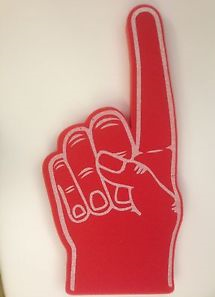Make Time for the Work That Matters (Post 2 of 4)
 Since we all have the same number of hours in a day, working as efficiently as possible is no brainer. But how? Business productivity experts Julian Birkinshaw and Jordan Cohen in the September issue of Harvard Business Review provide a self-assessment score card for identifying low-value tasks. I’ve replicated it below for discussion purposes. Check back for my next post to learn how it’s helping some organizations win the race against the clock.
Since we all have the same number of hours in a day, working as efficiently as possible is no brainer. But how? Business productivity experts Julian Birkinshaw and Jordan Cohen in the September issue of Harvard Business Review provide a self-assessment score card for identifying low-value tasks. I’ve replicated it below for discussion purposes. Check back for my next post to learn how it’s helping some organizations win the race against the clock.
Self-Assessment: Identifying Low-Value Tasks
Developed by Julian Birkinshaw and Jordan Cohen (HBR, 9/13)
Make a list of everything you did yesterday or the day before, divided into 30- or 60-minute chunks. For each task, ask yourself four questions:
How valuable is this activity to the firm?
Suppose you’re updating your boss or a senior executive on your performance. Would you mention this task? Would you be able to justify spending time on it?
| It contributes in a significant way towards the company’s overall objectives | 4 |
| It contributes in a small way | 3 |
| It has no impact, positive or negative | 2 |
| It has a negative impact | 1 |
To what extent could I let this go?
Imagine that because of a family emergency, you arrive at work two hours late and have to prioritize the day’s activities. Which category would this activity fall in?
| Essential: This takes top priority | 4 |
| Important: I need to get this done today | 3 |
| Discretionary: I’ll get to it if time allows | 2 |
| Unimportant/optional: I can cut this immediately | 1 |
How much personal value do I get from doing it?
Imagine that you’re financially independent and creating your dream job. Would you keep this task or jettison it?
| Definitely keep: it’s one of the best parts of my job | 5 |
| Probably keep: I enjoy this activity | 4 |
| Not sure: This task has good and bad points | 3 |
| Probably drop: I find this activity somewhat tiresome | 2 |
| Definitely jettison: I dislike doing it | 1 |
To what extent could someone else do it on my behalf?
Suppose you’ve been tapped to handle a critical, fast-track initiative and have to assign some of your work to colleagues for three months. Would you drop, delegate or keep this task?
| Only I (or someone senior to me) can handle this task | 5 |
| This task is best done by me because of my particular skill set and other, linked responsibilities | 4 |
| If structured properly, this task could be handled satisfactorily by someone junior me | 3 |
| This task could easily be handled by a junior employee or outsourced to a third party | 2 |
| This task could be dropped altogether | 1 |
Now tally your score. A low total score (10 or lower) reflects a task that is a likely candidate for delegation or elimination. If you subscribe to Harvard Business Review, go to “hbr.org/assessments/work-that-matters” for an interactive assessment tool to see how you stack up and to get advice for improved productivity.


